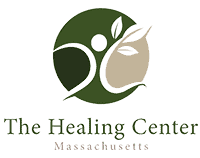The signs of heroin addiction can sometimes be elusive. Most of the time, the struggle can be evident while it is less obvious at other times. Regardless, knowing what the signs of potential addiction are can help individuals to aid their loved ones in getting help. Addiction is a chronic and relapsing condition that can cause emotional upheaval, broken relationships, and chronic unemployment. Without proper care, the impacts can progressively get worse, making daily life extremely difficult.
What is Heroin?
Opioids are substances that bind to the opioid receptors in the brain, altering someone’s perception of pain. Heroin is an illicit opioid drug that is manufactured and distributed illegally on the streets. It has no medical uses, and the risks far outweigh the rewards of using this drug. Heroin is synthesized from morphine, which is a natural substance that is extracted from the opium poppy plant. This drug usually comes in a white powdery or sticky black form, and it can be snorted, smoked, or injected intravenously. Heroin is highly addictive and can have long-lasting, devastating results.
Effects of Heroin
The short and long-term effects of heroin can be profound. They can affect the individual’s body and mind, leading to extensive impacts in all areas of their life. Short-term, heroin causes an intense rushing sense of euphoria and relaxation, while also resulting in altered pain perception, drowsiness, and slowed breathing. Other effects can include dry mouth, small pupils, and drifting in and out of consciousness or nodding. The long-term effects of heroin use can be devastating. Prolonged use can result in physical dependence, tolerance, and addiction to the substance, making it extremely difficult to stop using heroin. Physically, individuals may experience collapsed veins, abscesses, and infections like hepatitis. Other effects can include depression, anxiety, and cognitive impairments. Those using this drug run a risk of overdose, potentially leading to respiratory failure, coma, or even death.
Signs of Addiction
Being aware of the potential signs of heroin addiction can help those who may have a loved one struggling with this drug. Knowing what to look out for can aid in encouraging a loved one to get much-needed professional help. Physical signs can include needle marks or track marks at injection sites, constricted pupils, dramatic weight loss, slurred speech, and extreme drowsiness or nodding. Behaviorally, someone struggling with heroin may begin to withdraw from family and friends, as well as once enjoyable activities. They may be neglecting their responsibilities, neglecting personal hygiene, or engaging in risky behaviors. Extreme mood swings, depression, anxiety, and cravings can be indicative of potential addiction, as well as legal issues. Other signs of heroin addiction can include continued use despite negative consequences, drug-seeking behaviors, and borrowing or stealing money.
Heroin Withdrawal Symptoms
It is important to note that when the signs of heroin addiction are more prevalent, the individual is likely to experience uncomfortable withdrawal symptoms when ending its use. It is important to understand that not everyone will experience withdrawal the same. Some people may have mild symptoms while others have debilitating symptoms that can be dangerous. Different factors that play a role in withdrawal include age, length, level of usage, method of use, as well as any underlying physical or mental health conditions. Symptoms of heroin withdrawal can include:
- Muscle aches and pains
- Itchy or runny nose
- Watery eyes
- Nause and vomiting
- Diarrhea
- Anxiety and depression
- Restlessness
- Insomnia
- Irritability and agitation
- Mood swings
- Increased heart rate
- Increased blood pressure
- Rapid breathing
Having proper and professional care to help prevent severe adverse reactions during withdrawal is crucial to ensuring safety and success. Those who attempt to stop using this drug using the cold-turkey method often return to using it as a result of these withdrawal symptoms.
Dual Diagnosis
Often individuals exhibiting signs of heroin addiction also struggle with mental health. This is known as a dual diagnosis. When someone struggles with substance use disorders and mental health conditions such as depression and anxiety, simultaneously, are said to have a dual diagnosis or co-occurring disorders. Proper care for dual diagnosis is crucial. It is essential to treat both the addiction as well as the mental health disorders simultaneously to achieve recovery. Leaving one of these conditions untreated may result in relapse. Therapies such as cognitive behavioral therapy and dialectical behavioral therapy can help these individuals learn and implement healthy coping skills that foster a healthy response to triggers.
Overcoming Heroin Addiction
Heroin addiction is ravaging communities across the country. The number of individuals struggling with it is astounding. Many of these individuals are unaware of the help available to them. If you or a loved one are finding it difficult to stop using heroin, we can help. At The Healing Center, we offer help for these individuals to learn how to achieve a happy and healthy life without using drugs. Call us today and begin a journey of recovery.

